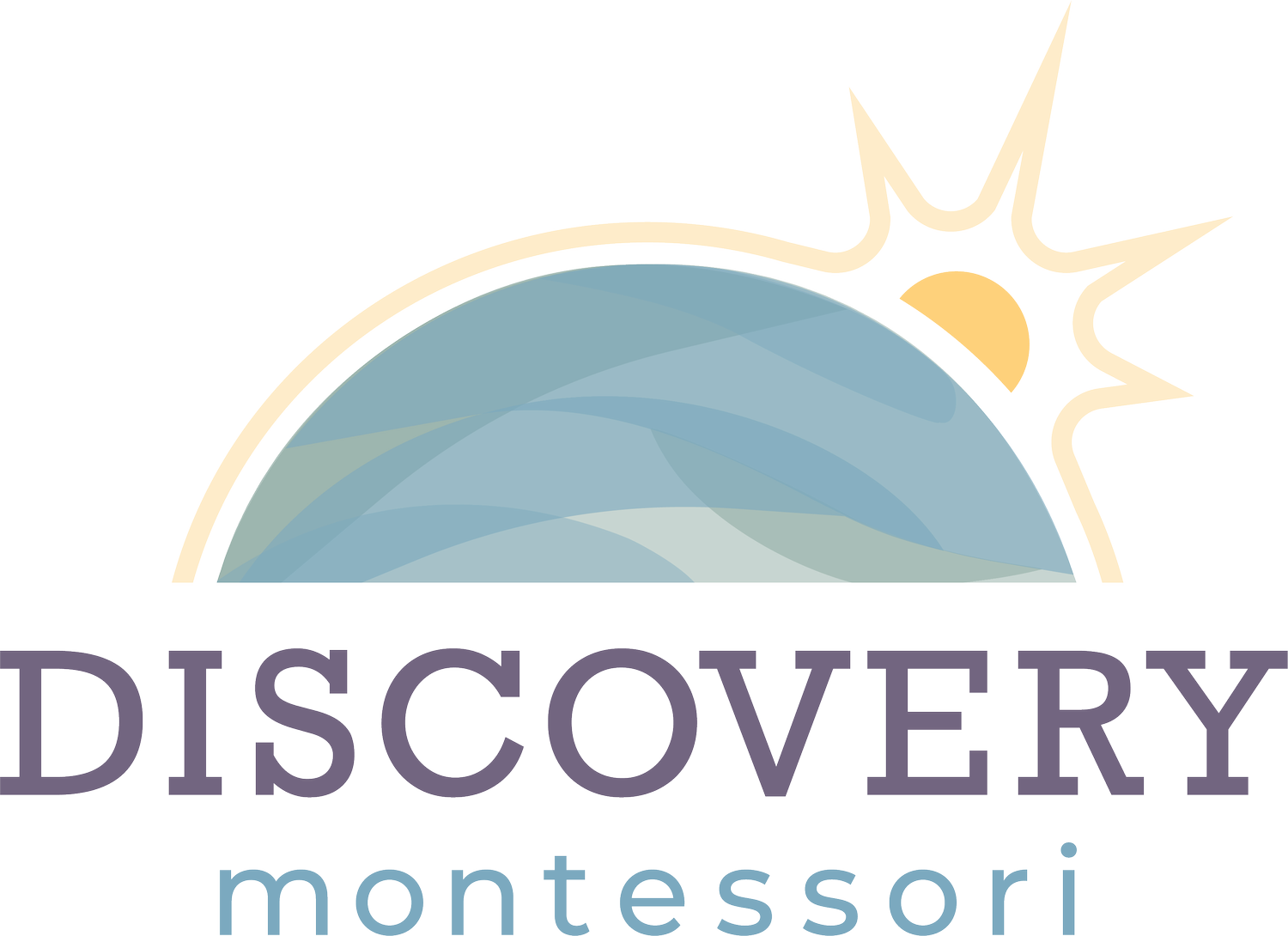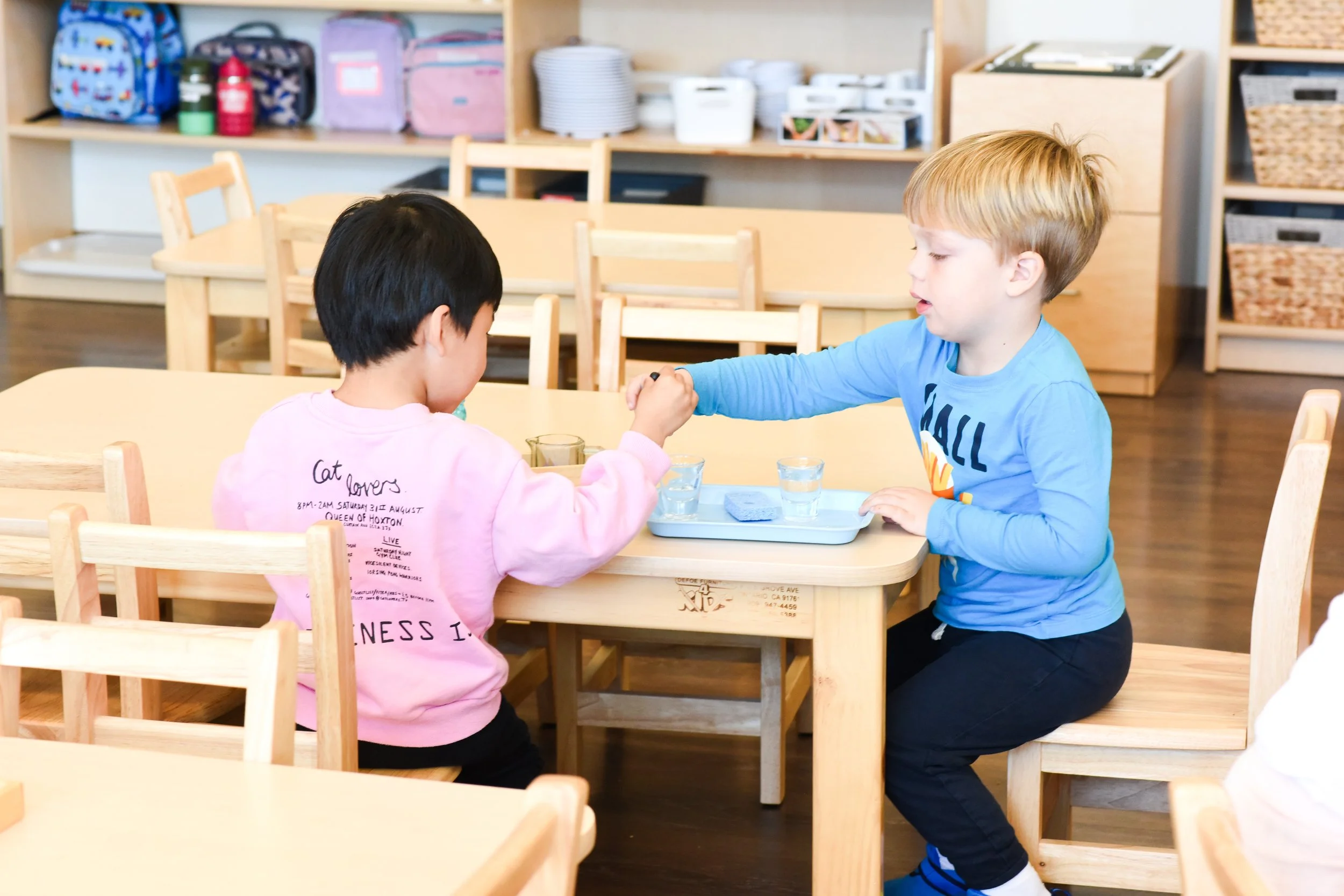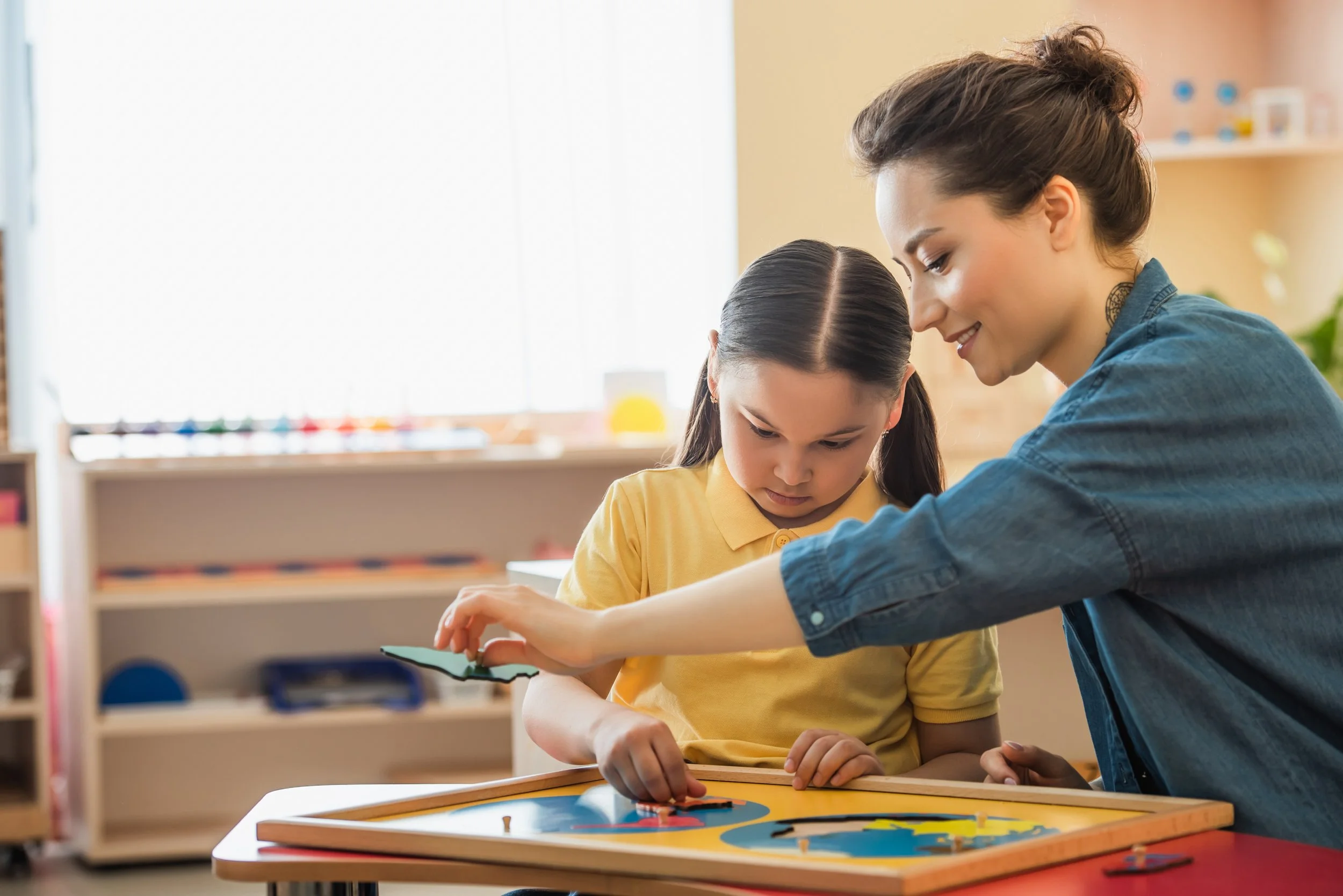Montessori Primary Program
(ages 3 to 6 years)
The Primary classrooms are multi-age, each containing 3-, 4- and 5-year-olds. This ensures that each child is able to progress at his or her own pace in social, emotional and academic development, and that each child can act as both a teacher and a learner in the classroom. In these classrooms, children are free to work at their own pace, collaborating in small groups guided by a Montessori-accredited teacher.
The Primary environment unifies the social, physical, and intellectual functioning of the child. The environment provides the children with an early and general foundation that will enable them to acquire more specialized knowledge and skills throughout their school career. The foundation includes:
A positive attitude towards school
Inner security and a sense of order
Pride in the physical environment
Abiding curiosity
Habits of concentration, initiative, and persistence
The ability to make decisions
Self-discipline
A sense of responsibility to other members of the class, school, and community
How the Learning Happens
There are several main components to a Montessori classroom: Practical Life, Sensorial, Language, Mathematics, Geography and Science. In the practical life area, children can choose from activities such as preparing snacks for themselves and others, laying and clearing the table, and cleaning up or working with everyday household items such as tongs, glassware, buttons, and zippers. In the sensorial area, children fine-tune perception, awareness and differentiation leading to a foundation for abstract thinking and creative expression.
In the language and mathematics areas, children are introduced to literacy and numeracy skills. As they work through language activities, children extend emergent literacy skills leading to fluency in both writing and reading. Mathematics activities lead children from early counting and matching experiences towards an increased understanding of number patterns, the four operations, number facts, and two- and three-dimensional shapes.
Language Arts
Children develop foundational skills that prepare them for later learning in language arts. Phonetic awareness is the ability to understand that a word is made up of a sequence of speech sounds paired with the ability to manipulate those sounds. This is the most essential element of language arts instruction. Students will learn the letters of the alphabet and will match letters with their associated sounds. Vocabulary will be developed through direct instruction in specific concepts. Books will be read daily to the students to help them identify and use comprehension strategies. Students learn to write letters, words, and beginning stories.
Mathematics
By the end of the Primary experience, students understand small numbers, quantities, and simple shapes in their everyday environment. They count, compare, describe, and sort objects, and develop a sense of properties and patterns.
Science
The curriculum provides the foundational skills and knowledge for students to learn core concepts, principles, and theories of science at higher levels of education. The standards are organized in sets under broad concepts. This organization is intended to help the child move between topics and follow them as the content systematically increases in depth, breadth, and complexity through the years.
History and Social Science
Students are introduced to basic spatial, temporal, and causal relationships emphasizing the geographic and historical connections between the world today and the world long ago. The stories of ordinary and extraordinary people help describe the range and continuity of human experience and introduce the concepts of courage, self-control, justice, heroism, leadership, deliberation, and individual responsibility. Historical empathy for how people lived and worked long ago reinforces the concept of civic behavior: how we interact respectfully with each other, following rules, and respecting the rights of others.
Extended Day/Child Care
Extended childcare programs are available for children year round. The program is offered from 7:00 to 8:30 a.m. and from 3:00 to 6:00 p.m. This program offers the children a chance to socialize and engage in informal play. Many of our extracurricular and elective programs are offered during these hours





